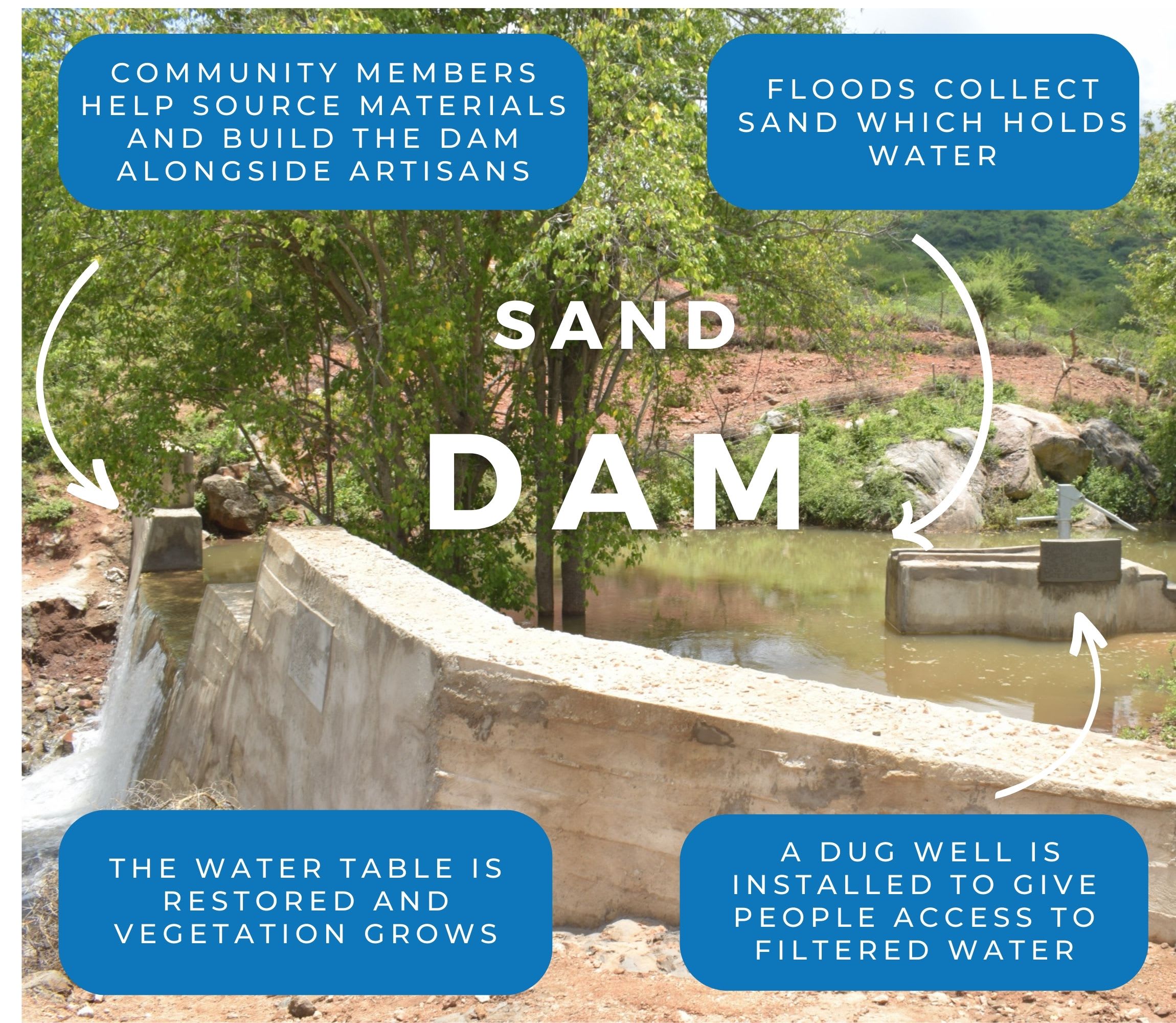King'ethesyoni is a village found in Kitui County of Southeastern Kenya. It is a hilly region covered in trees planted by the 417 community members living here. The surrounding area is made of grazing land and farmland.
The only water source for community members here is open river scoop holes. These are holes people dig by hand ranging from several inches to several feet in depth until water seeps in that they can then scoop into their water containers. Scoop holes are open to all sorts of contaminants and are widely shared by human beings and livestock alike.
Out of the community members present at the time of our most recent survey from this area, 3 people reported that they had fallen sick in the last 6 months suffering from waterborne diseases. Their illnesses were attributed to either drinking contaminated water, improper handling of drinking water, or poor personal hygiene practices at home. Others reported having their children suffer from water-related diseases such as dysentery and typhoid.
Sometimes the water is murky with sand and mud, but the community members have almost no other water sources to choose from. Irregular rainfall patterns cannot guarantee water for communities year-round, and most rivers in the Kitui County are seasonal. The time spent fetching the unsafe scoop hole water increases as the dry season progresses.
"Water challenges in our community have been so severe it has almost become a culturally accepted norm. Getting water sometimes has been taking half of my day's time only to end up with dirty water unsafe for human consumption which is not even enough for my family needs," said Isaac Mutua, a local farmer.
The responsibility of fetching water often falls on women and children. We also spoke with Monica Mbuvi, a mother who gets up early each day just to get water for her family.
"We have really suffered as women of this locality in the plight of persistent water problems," she said.
"I have been forced to sometimes wake up early in the morning with my children to go looking for water more than 3 kilometers (~2 miles) away from home. It is always risky in the dark."
What We Can Do:
Our main entry point into King'ethesyoni Community has been the Katambu Self-Help Group, which is comprised of households that are working together to address water and food scarcity in their region. These members will be our hands and feet in both constructing water projects and spreading the message of good hygiene and sanitation to everyone.
Sand Dam
After the community picked the ideal spot, our technical team went in and proved the viability by finding a good foundation of bedrock. Now, our engineers are busy drawing up the blueprints.
We are unified with this community to address the water shortage. As more sand dams are built, the environment will continue to transform. As the sand dams mature and build up more sand, the water tables will rise. Along with this sand dam, a hand-dug well will be installed to give community members an easy, safe way to access that water.
Building this sand dam along with the well in this community will help bring clean water closer to hundreds of people living here.
Training
These community members currently do their best to practice good hygiene and sanitation, but their severe lack of water has been a big hindrance to reaching their fullest potential.
We will hold hygiene and sanitation training sessions with the Katambu Self-Help Group and other community members to teach about important hygiene practices and daily habits to establish at the personal, household, and community levels. This training will help to ensure that participants have the knowledge they need to make the most out of their new water point as soon as the water is flowing.
One of the most important topics we plan to cover is the handling, storage, and treatment of water. Having a clean water source will be extremely helpful, but it is useless if water gets contaminated by the time it is consumed. We will also emphasize the importance of handwashing.
We and the community strongly believe that all of these components will work together to improve living standards here, which will help to unlock the potential for these community members to live better, healthier lives.
We typically work with self-help groups for 3 to 5 years on multiple water projects. We will conduct follow-up visits and refresher trainings during this period and remain in contact with the group after all of the projects are completed to support their efforts to improve sanitation and hygiene.

 Sand Dam
Sand Dam
 Rehabilitation Project
Rehabilitation Project


































